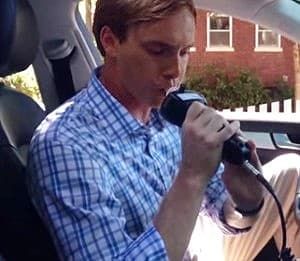
Repeat DWI offenders are scary people. Once arrested, fined, and even jailed, they get back on the road despite the alcohol in their veins, and as a result they become extremely dangerous.
Like many states, North Carolina has a repeat DWI problem that it hasn’t fully addressed. Each year alcohol takes the lives of around 380 North Carolinians on the state’s roads – about a third of all road deaths. This carnage costs the state close to $2 billion. However, this could change for the better if two laws were passed.
Felony DWI – Should 2 Be Enough?
One way to handle such problems is to make DWI a felony – a crime punishable by a considerable jail term – after a certain number of convictions. Some states make the second DWI a felony, some a third. In North Carolina, one must get to four DWI convictions before felony charges are imposed. That strikes public safety advocates as too lenient.
Last year an attempt was made to pass a bill which would have made DWI a felony after 2 prior convictions. It did not make it through the Senate, however.
Ignition Interlocks – Needed for All DWI Offenders
One major change North Carolina could make would be to mandate ignition interlocks for all DWI offenses. An ignition interlock, or car breathalyzer, prevents a vehicle from starting if the driver has been drinking.
Right now 27 states have laws which require all DWI offenders, including first offenders, to install the device. North Carolina orders the device for second offenses, and for first offenders only if their blood alcohol concentration (BAC) was over .15. A bill that would extend interlocks to everyone convicted of DWI, HB 877/SB 619, did not make it through the short session of Congress.
For some, mandating the devices for all offenders seems like an extreme step, but in fact, the practice is known to reduce alcohol-related road fatalities significantly. Unlike jail, an interlock does not totally disrupt an offender’s life, and makes it easier, not harder, to obtain treatment and get one’s life back on track.
Another concern is the toll the increased interlock orders would make on the state, but Mothers Against Drunk Driving (MADD) North Carolina notes that the structure is in place to extend interlocks to all DWIs. “North Carolina is ready for this to take place,” says LaRonda Scott, State Executive Director of MADD North Carolina. “It will significantly reduce the number of injuries and fatalities in our state.”
Ignition interlock providers here have agreed to waive installation fees. In addition, service centers are in place across North Carolina for convenient access.
MADD is hoping that the bill will continue its journey to the Governor’s desk next year, when the Assembly reconvenes.
Drunk drivers don’t change, so laws have to. The past few decades have shown what strong, well-enforced legislation can do to reduce the toll of impaired driving on our roads. It’s time for North Carolina to take these two next steps to save even more lives.
